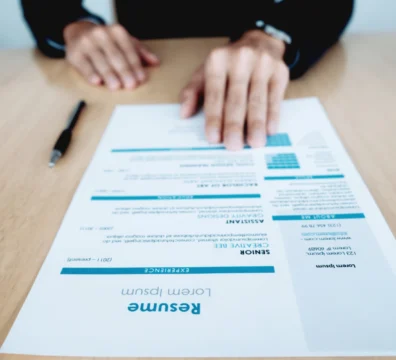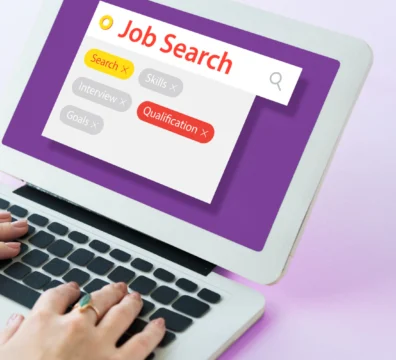Recruitment has changed significantly over the past decade, and today’s job market is more employee-centric than ever. 76% of hiring managers constantly find attracting quality candidates challenging, where the entry-level jobs are hardest to fill.
However difficult the process may look, you must be careful in choosing employees. They are the foundation blocks of a successful company where one single damage can disrupt your entire business.
But it’s hard to truly identify a real gem through interviewing alone. Therefore, a personality test for hiring employees is also essential besides conducting professional tests.
It gives you extra insight into the candidates’ personality traits and behaviours for making better hiring decisions. But which personality test is the best for your business?
What is a Personality Test for Hiring Employees?
Personality tests for job applicants are not something where a wrong answer will cut off their marks. However, these assessments consist of questions that record how applicants act and respond to particular work situations.
For example, these tests determine egotistical drive, neuroticism, agreeableness, emotional stability, problem-solving and conflict-resolution skills, etc. This helps you understand how your employees will react in real-life situations.
Importance of Personality Test for Hiring Employees
With a proper personality test recruitment process becomes more successful. It is because you hire people who align not just by education or experience but also mentally with your company goals.
Using personality tests for hiring can help you identify the authentic self of candidates, like the hidden portion of an iceberg lying below the surface.
People’s skills can change over time, just like a disorganised employee can now learn to work organisedly. But, what doesn’t change is someone’s personality; these tests reveal those hidden qualities. Now, these can be good or bad; for good ones, you can use them for company growth, and for the bad ones, think twice before hiring.
For example, candidates who always find solutions to problems can use their strengths in business growth. On the other hand, you can find candidates who behave well till you satisfy their ego; otherwise, they’re rude. You must carefully decide whether to hire these people in business.
Moreover, personality tests help you save recruitment costs. Why? Suppose you hire a candidate whose personality doesn’t fit the job requirements. Will they be productive at work? In most cases, they leave the company within a few days or months of recruitment and force you to start the hiring process from scratch.
This kills time, costs you money, and disrupts the whole company process. Therefore, more and more recruiters are using personality tests to hire employees.
6 Types of Personality Test for Hiring Employees
Though different types of personality tests are used for hiring, we have compiled a few important ones for you. These tests are vital in choosing the right talent who blends properly with company culture.
The Caliper Profile
An individual carries multiple personality attributes that may or may not fit your job role. For example, an egoistic nature will never be helpful while dealing with difficult clients. The Caliper Profile test analyses 23 different personality attributes of a candidate, e.g., egotistical drive, leadership, risk assessment, time management, etc.
You can score these candidates on a scale of 1 to 99 percentile range. The higher a candidate’s score, the better their suitability in your organisation.
MBTI (Myers-Briggs Type Indicator)
Every candidate has a unique way of using perception and judgment in certain situations. MBTI checks such preferences of candidates to understand how they see and react to conditions.
However, such tests mainly check introversion/extroversion, thinking/feeling, sensing/intuition, and judging/perception. MTBI is a popular pre employment personality assessment test that plays a significant role in interpreting candidate experiences.
Predictive Index (PI) Behavioural Assessment
The PI Behavioural Assessment takes about 12 minutes to assess four main and two secondary aspects of a candidate’s personality. Firstly, the test identifies “dominance”, “patience”, “formality”, and “extroversion” in a candidate, followed by “decision-making” and “response level”.
It gives you in-depth knowledge about an individual’s suitability for your company. Additionally, you can determine how they are likely to behave in different situations.
DISC (Dominance, Influence, Steadfastness, and Conscientiousness) Assessment
While some employees are satisfied with working on simple projects, they stress out when complexity arises. On the other hand, some employees may feel disheartened with simple tasks.
The DISC assessment helps the recruiter check how candidates think, act, and react to situations. It usually contains short MCQ questions that smoothly capture each participant’s natural responses. Conducting such a behavioural assessment test for employment beforehand protects you from complexities later.
The Big 5 Test or Five Factor Model (FFM)
Every company must assess if a candidate’s personality matches their role. One of the popular personality assessment tests for employment is the Big 5 test.
It measures five different psychological aspects of candidates through a set of 60 questions. These personality traits are extraversion, agreeableness, conscientiousness, neuroticism, and openness. Such a pre-assessment test helps you identify if a prospect is compatible with your team members and the management.
SJT (Situational Judgement Test)
Different situations may arise in a workplace, like a problematic customer unsatisfied with your work or an unexpected deadline. The Situational Judgement Test determines how a candidate responds to such situations.
The test comprises questions related to different critical work scenarios and asks candidates the way they handle them. This helps you understand how these candidates will react when similar situations arise in real-time.
SJT test focuses on employees’ conflict management, problem-solving, negotiation, teamwork, cultural sensitivity, and interpersonal skills.
How 6 Pence Helps
Today’s employers do not hire just based on qualifications but also look at the prospective employees’ personality and characteristics traits. An employee’s character has a direct impact on a worker’s productivity.
Additionally, it helps you promote a positive work environment. Therefore, you must focus on conducting a personality test for hiring employees today. At 6 Pence, we help you connect with quality talents on a temporary or permanent staffing basis. To know more about our recruitment and staffing process, contact us today!
Also Read: Increase Productivity With Top Employee Training Techniques in HRM
Frequently Asked Questions
What personality test is used for recruitment?
Numerous personality tests are used today for hiring people, like the Big 5 test, the Caliper Profile, the Predictive Index Behavioural Assessment, the DISC assessment, and the Situational Judgement assessment.
What personality type is best for a recruiter?
The preferred personality type of a recruiter is one with good judgement, an active listener, a multitasker, and an extrovert.
What is the Big Five personality test for hiring?
The Big Five personality test for hiring is used to assess five main traits of a candidate, including openness, extraversion, agreeableness, conscientiousness, and neuroticism.




































































































